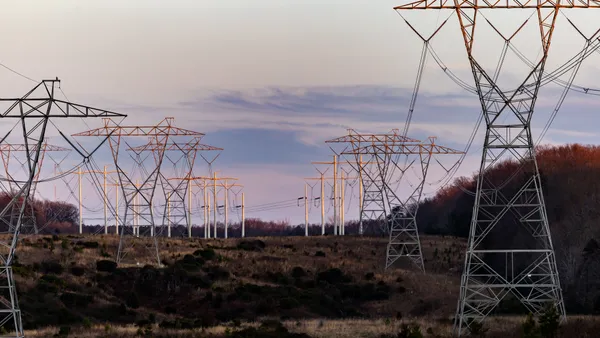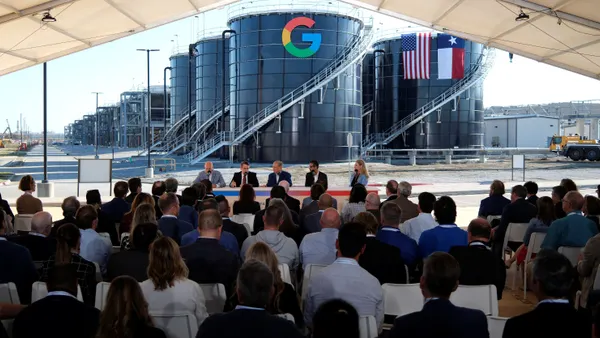Dive Brief:
- The state of Michigan and the Midcontinent ISO have developed what they believe is a solution to the state's difficulties in assessing its energy needs, putting together a plan to identify three years in advance how much capacity will be needed, Michigan Radio reports.
- Under the proposal, states would have an option to select a “State Compensation Mechanism” for procuring electrical resources that includes requiring regulated utilities to set charges in advance, and allowing alternative suppliers to try and undercut them.
- Failing that, alternative suppliers would pay that charge to the utility, either DTE or Consumers Energy, that has responsibility for procuring capacity to cover that load in the last resort.
Dive Insight:
Michigan has struggled with its partially-deregulated utility market for years—its 10% cap on choice customers has made it difficult for DTE and Consumers to assess their capacity needs when potential price spikes could cause customers to return to the utility.
In June of this year, MISO warned of potential generation shortfalls as soon as 2018 due to retirement of older coal-fired generators in the state’s lower peninsula. Its survey of generators forecasted a 300 MW shortfall by June of next year, a number that could double by 2021.
But state lawmakers hope this solution will smooth such difficulties. Gov. Rick Snyder said the collaboration will hopefully help meet the state's power demands while keeping prices low.
“This process will produce real solutions to a serious problem, and shows the positive outcomes that are possible when there is a spirit of partnership between the state and MISO,” Snyder said in a statement. “This will allow our state legislature to focus on improvements to existing laws.”
Using a “State Compensation Mechanism” for procuring electrical resources, the Michigan Public Service Commission would use a contested proceeding to set a capacity charge three years in advance. An alternative electric supplier would then have an opportunity to find other capacity—"presumably at a lower price," the statement added—or pay that charge to the utility.
MISO would be charged with setting amounts of capacity to be procured to meet reliability rules, and would evaluate capacity arrangements used to meet resource adequacy requirements. Lawmakers in Michigan will still need to do some work in order to implement the proposal, and the Federal Energy Regulatory Commission will need to approve the concept as well.
Meanwhile, two legislative proposals are making their way through the legislature. While focusing on vastly different issues, the Senate Bills 437 and 438 aim to manage the state's regulated utilities and update renewable energy and efficiency standards.














